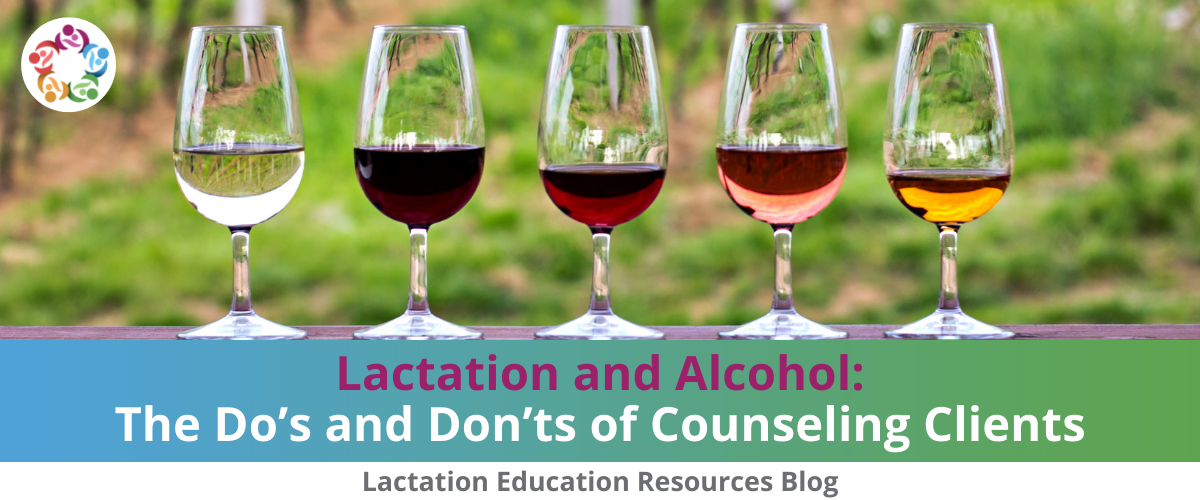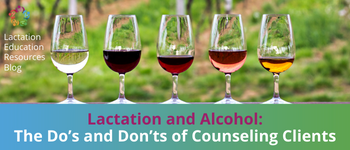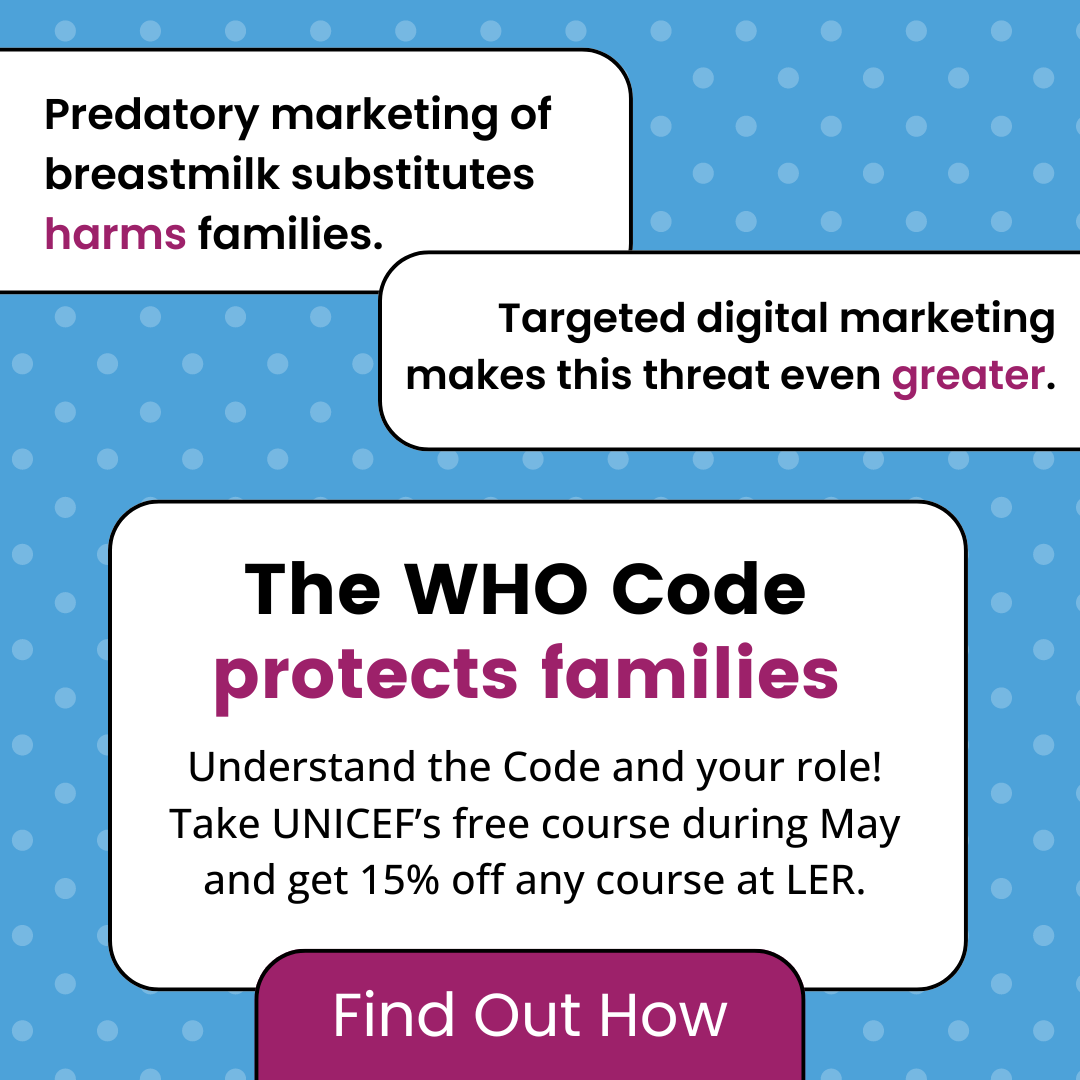Featured
Lactation and Alcohol: The Do’s and Don’ts of Counseling Clients


Summer is here, and you can feel the collective relief! For a second winter, Covid-19 made indoor get-togethers challenging and scarce. Now families can finally gather outdoors–to talk together, laugh together, eat and drink together.
For some clients, summer socializing also means making a new decision: Will they drink alcohol while they’re lactating?
To prepare you to assist them in navigating that question, here are the Do’s and Don’ts of counseling parents about this potentially sensitive topic. First, the Don’ts.
Don’t assume your lactation clients avoid alcohol. Studies indicate that 36 to 83 percent of breastfeeding/chestfeeding parents use at least some alcohol during their lactation journey, even if they abstained during their pregnancy. Significantly, studies have also found that most parents receive no information from their prenatal healthcare providers about lactation and alcohol–or that the messages they do get are wildly inconsistent.
Don’t advise parents to “pump and dump.” It’s such a common recommendation that most parents have probably heard it: If you drink, pump your milk and discard it to keep your baby safe. The problem with this advice? It’s wrong. Pumping and discarding milk does not reduce the alcohol content in a parent’s milk more quickly, and it does not ensure that milk is alcohol-free or “safe” for their infant. Clearing alcohol from breastmilk depends on time and the parent’s body weight, and cannot be hastened by pumping.
Don’t misunderstand “BAC = MAC.” You may have heard that a parent’s blood alcohol content (BAC) is equal to their milk alcohol level, and this is true. However, it’s easy to make the leap to thinking that that means an infant who consumes that milk will have the same blood alcohol level as their parent, and this is false. Once an infant ingests milk containing alcohol, their own digestive system and liver go to work filtering the alcohol out so that they are exposed to only a fraction of the alcohol consumed by their parent. (Want a better understanding of this topic? Explore our new course, “Do Booze and Lactation Mix?”
Now that we’ve covered some of the Don’ts, what should you do instead?
Do provide scientifically accurate information in a nonjudgmental way. Lactation support professionals have an ethical duty to give clients accurate information in a way that is culturally matched and offered dispassionately, without judgment, so they can decide for themselves what they want to do. This includes giving clients evidence-based, objective information regarding the biology of how alcohol passes into human milk, how it is eliminated, and how this process affects their infant.
Do discuss other impacts on parenting. Decisions about drinking and parenting are not limited to the effect on lactation. Open a discussion with clients around how decisions about alcohol use overall intersect with their new role as parents.
Do practice excellent communication. When counseling clients on this topic, pay attention to your body language. Lean into the conversation, and be ready to project listening, not judging.
Remember that each family has its own culture, traditions, and norms.
With your evidence-based care supporting their own fully informed decisions, lactating parents do not need to be sidelined from the celebrations and customs that are important to them.
We can toast to that!
Ready for more?
Liz Brooks, JD, IBCLC, FILCA, takes on this topic in our new class, “Do Booze and Lactation Mix?” Brooks has been an attorney specializing in ethics, is currently an IBCLC in private practice, and is the author of textbook chapters, journal articles, and blogs on legal and ethical issues. Her class offers a clear, logical, sensitive, and systematic discussion of the biology of alcohol and lactation, a critique of major health advisory groups’ recommendations, and a framework for engaging in culturally humble, evidence-based, compassionate dialogue with families.
Liz Brooks, JD, IBCLC, FILCA, takes on this topic in our new class, “Do Booze and Lactation Mix?” Brooks has been an attorney specializing in ethics, is currently an IBCLC in private practice, and is the author of textbook chapters, journal articles, and blogs on legal and ethical issues. Her class offers a clear, logical, sensitive, and systematic discussion of the biology of alcohol and lactation, a critique of major health advisory groups’ recommendations, and a framework for engaging in culturally humble, evidence-based, compassionate dialogue with families.
By accepting you will be accessing a service provided by a third-party external to https://www.lactationtraining.com/

